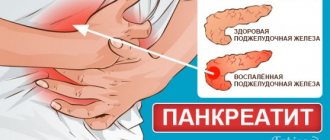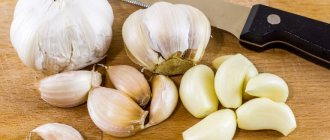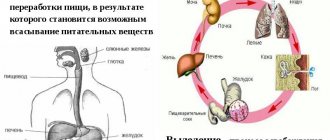It's no secret that all alcoholic drinks negatively affect a person's overall well-being and health in general. Most people report that their stomach hurts after drinking alcohol. This is the first sign of the harmful effects of alcohol.
Stomach pain is one of the most common symptoms, but it is worth remembering that each person is individual, and alcohol intoxication manifests itself differently in each person. When alcohol-containing liquids enter the body, the gastrointestinal tract is the first to take on all the aggressive effects of ethyl alcohol.
Ethanol has a negative effect on all tissues and organs of the human body, since toxic products accumulate in the body when consumed. If you drink alcoholic beverages daily, dysfunction of many organs and systems will occur. In addition, alcoholic drinks can affect metabolism and also inhibit brain function.
The effect of alcohol on the stomach
Regardless of the type, all alcoholic drinks for the stomach are considered aggressive products, due to the presence of ethanol. The substance is irritating and often provokes inflammation in tissues. When drinking alcoholic beverages, the alcohol present in them affects the stomach as follows:
- disrupts the structure of the cells of the stomach walls and partially destroys the protective layer of mucus covering the organ;
- stimulates increased production of gastric juice. This liquid contains a large amount of hydrochloric acid and some digestive enzymes. When drinking alcoholic beverages, the efficiency of food digestion decreases, and the absorption of nutrients and microelements also worsens;
Irritated stomach
- due to the irritating effect of alcohol on the mucous membranes, the risk of developing gastritis, chronic hyperemia and edema increases;
- under the influence of ethyl alcohol and its breakdown products, motor function is inhibited, so food stays in the stomach longer. This factor increases the risk of developing inflammatory and dystrophic processes;
- irritation of pain receptors located in the walls of the organ.
If you abuse alcohol, over time the dysfunction of the organ will become permanent - chronic alcoholic gastritis will develop. The pathology causes atrophy of the mucous membrane and digestive glands. In the absence of timely therapy, the risk of oncological processes increases significantly.
On a note! How strong an effect alcohol will have on the stomach largely depends on the person’s state of health and the presence of diseases: gastritis or peptic ulcer.
Causes of pain
Doctors warn that drinking large amounts of alcohol or chronic drunkenness have a negative effect on the gastrointestinal tract, including the stomach. If 15-20 minutes after drinking alcohol a person has pain in the esophagus, stomach or intestines, the reasons may be as follows:
- disruption of the structure of the mucous membrane and the formation of erosions on the surface due to the harmful effects of aggressive hydrochloric acid;
- dysfunction of motor skills provokes spasms of smooth muscles, resulting in a sensation of pain;
- problems with the movement of a bolus of food from the stomach into the duodenum - the process is accompanied by heartburn, a feeling of heaviness, and pain.
- at the initial stage of alcohol dependence, ethanol provokes increased production of mucus by the glands of the stomach, which also leads to painful sensations.
If you drink strong drinks and do not have a snack, not only your stomach, but also your esophagus may hurt. In this case, similar symptoms will be caused by tissue burns.
Drinking strong alcohol
With regular drinking of alcohol, the severity of pathological changes will increase, since over time erosions and ulcers appear on the mucous membranes, the functioning of the muscles of the organ is disrupted, and the production of hydrochloric acid increases. All this leads to the fact that spasms and soreness are always present, and after the next feast, the symptoms will only intensify.
https://youtu.be/C8Cy56dytxA
Traditional medicine recommendations
Folk remedies for pain after alcohol are not always approved by official medicine. For example, the recommendation to eat plums or peppercorns does not fit in with the direction of dietary nutrition.
You can use herbal tea made from currant leaves, mint, and chamomile. These plants soothe pain and relieve intoxication. Taking a tablespoon of flaxseed or sea buckthorn oil helps.
People who are addicted to alcoholic drinks of any kind, including cocktails with alcohol, liqueurs, cognac, and beer, should think more about their health. The appearance of an attack of pain is a signal of the beginning of damage to the entire digestion.
A stomach ache due to a hangover is a characteristic signal from the body about problems in the digestive system. If discomfort occurs with alarming regularity, then there is a high probability that the gastric mucosa is damaged. He suffers from a hangover due to the formation of ulcers or erosions, tissue burns from toxic ethyl alcohol. Long-term treatment with antacids, antispasmodics, and regeneration stimulants may be required. But sometimes the stomach hurts after a hangover as a result of indigestion. In such cases, a single dose of analgesics or folk remedies will help.
What stomach diseases does alcohol cause?
If your stomach or other gastrointestinal organs hurt after drinking alcohol, you should immediately consult a doctor, get tested and undergo examinations. Only after a full diagnosis will the doctor identify what triggered the occurrence of such symptoms and select an appropriate treatment regimen.
As medical practice shows, pain and spasms are most often caused by inflammatory processes and digestive disorders. However, we cannot exclude the possibility that the pain is caused by more dangerous pathologies. You cannot postpone a visit to the doctor, since the lack of therapy and subsequent excessive consumption of alcohol-containing drinks over several years can cause stomach cancer.
On a note! Fibrogastroscopy is considered the most informative examination. This type of examination can be carried out in almost all private clinics. During the procedure, the doctor can visually assess how severely the mucous membranes of the upper digestive tract are affected.
Alcohol intoxication
Alcohol intoxication is a condition that occurs after consuming large amounts of alcohol. It is accompanied by physiological, psychological and behavioral abnormalities. The main cause of intoxication is the harmful effects of ethanol and its breakdown products on internal organs and the central nervous system. More often, such poisoning is diagnosed after heavy drinking. It is accompanied by the following symptoms:
- severe headache, dizziness;
- nausea and vomiting;
- impaired coordination of movements;
- tremor of the limbs;
- strong thirst;
- bloating;
- bowel dysfunction;
- spasms in the abdominal cavity and stomach area.
Alcohol intoxication
In international medicine, there are 6 stages of alcohol intoxication. In case of mild to moderate poisoning, help can be provided to the patient at home. In case of severe intoxication, qualified medical assistance is necessary.
Acute and chronic alcoholic gastritis
If your stomach often hurts from a hangover and you feel sick, this may be a sign of alcoholic gastritis. The disease is accompanied by damage to the integrity of the mucous membranes of the organ and often causes erosions that can bleed. There are 2 types of pathology:
- acute alcoholic gastritis - it can be cured at home;
- chronic alcoholic gastritis - therapy is carried out only under the supervision of a doctor.
In its manifestations, acute alcoholic gastritis resembles food poisoning and is accompanied by the following symptoms:
- 1-2 hours after consuming alcohol, a person’s stomach begins to hurt. The pain is mainly cramping in nature and localized in the hypochondrium;
- the occurrence of nausea, attacks of vomiting (in addition to food, mucus will be present in the discharge);
- the appearance of heartburn and belching;
- bitterness in the mouth;
- tachycardia;
- slight increase in body temperature.
With chronic gastritis, the stomach will hurt not only after drinking wine or beer. Minor pain will almost always be present. Especially often, discomfort, nausea and heartburn will make themselves felt after eating. With this type of disease, fatty and fried foods are strictly prohibited, as a strong burning sensation will occur after consuming them. Another characteristic symptom of chronic gastritis is sudden vomiting with mucus in the morning. May also be present:
- constant thirst;
- bowel dysfunction;
- sleep problems;
- loss of appetite and rapid weight loss.
Peptic ulcer
Another pathology that often accompanies chronic alcoholism is peptic ulcer disease. The disease develops with a long absence of treatment, ignoring the diet for gastritis and continuing to drink alcohol.
Stomach ulcer
A stomach ulcer is accompanied by more severe cramping pain, which makes itself felt 30-45 minutes after eating. The pain may radiate to the lower back and abdominal cavity. Many patients suffer from frequent vomiting with mucus and blood.
On a note! If left untreated and medical recommendations ignored, a stomach ulcer can cause bleeding from the vessels located in the affected area, which can lead to serious complications.
Restoring the gastrointestinal tract after binge drinking
If a person is not a chronic alcoholic, then it is usually not necessary to “start” the stomach quickly after drinking. The functioning of the digestive tract normalizes on its own after a few hours. You can speed up the process by taking a long rest, consuming balanced vitamin-mineral complexes and plenty of fluids.
“Starting up” the stomach after drinking is often necessary for people who have been poisoned by wine, beer, or vodka. During the day, it is advisable to drink only kefir or fermented baked milk with dried white bread. In case of acute hunger due to a hangover, you can diversify this diet with cereal porridge or meat broth.
When a person suffering from alcoholism has a stomach ache, medical intervention is required. You can get rid of the symptoms of ulcers or gastritis only by carrying out step-by-step, comprehensive treatment. It is advisable to immediately contact a narcologist who will help you stop drinking.
https://youtu.be/eQJeEJIFdYk
Treatment of stomach pain after drinking alcohol
If, after drinking alcohol, severe pain appears in the abdomen and the stomach burns, the patient must be given first aid. If symptoms such as vomiting blood and confusion are present at the same time, you need to call a team of doctors.
Medications
What to do if your stomach hurts after drinking alcohol, and what medications to use, should be decided only by a doctor, based on the results of the examination and tests.
Most often, patients are prescribed the following groups of drugs:
- Antispasmodics (No-shpa, Drotaverine). Eliminate spasms of the muscular lining of the stomach, normalize motor function, and relieve pain.
- Drugs that envelop the mucous membrane and protect it from damage (Rennie, Gastal, Maalox). Help eliminate heartburn and minimize pain.
- Antisecretory drugs (Omez, Omeprazole). Neutralize the effect of hydrochloric acid and protect the walls of the stomach from its harmful effects;
- Prokinetics (Domperidone, Metoclopramide). They fight impaired motor function due to gastritis, reduce stomach pain, and normalize intestinal permeability.
- Enterosorbents (Enterosgel, Polyphepan). Helps remove toxins and waste.
Polyphepan
What exactly to treat the stomach and how long to take medications is determined by the doctor, taking into account the individual characteristics of the patient and the type of pathology.
Traditional methods
If painful symptoms due to alcohol intake have recently appeared, and medical help is not available, it can be eliminated with the help of folk recipes. The ones that have proven themselves best are:
- Raw egg whites. Form a protective film on the surface of the mucous membrane, eliminate burning and stinging;
- Saffron tincture. 1 tablespoon of powder should be diluted in 250 ml of water and drunk in small sips. The liquid soothes irritated stomach receptors.
- Chicory. A decoction of chicory root is taken one tablespoon 4 times a day. The liquid helps reduce pain and fights intoxication.
On a note! For stomach diseases, both medicines and traditional recipes will give a positive effect only if you stop drinking alcohol.
Diet
A special diet will help minimize the harmful effects of alcohol on the human digestive system and normalize the functioning of the gastrointestinal tract. The following products will help alleviate the condition:
- oatmeal (rolled oatmeal can be prepared with either water or milk);
- low-fat fermented milk products;
- ripe bananas;
- berries;
- rice with vegetables;
- potato.
Fatty, fried and foods with a lot of spices should be avoided. Fast food, foods with a lot of preservatives, sweets, and soda are prohibited.
Chronic gastritis
Chronic gastritis is often a consequence of careless alcohol abuse. In this case, the disease progresses as a result of non-compliance with all doctor’s instructions. This cannot be done, since gastritis passes from an acute to a chronic form. It is very difficult to treat the disease at this stage, since the damage caused to the organ is quite difficult to eliminate. In this case, the doctor may prescribe a special diet, as well as painkillers and drugs that can normalize metabolic processes. Among the signs of chronic gastritis are:
- constant pain in the pit of the stomach and in the stomach;
- constant nausea;
- regular heartburn;
- constant feeling of thirst;
- lack of appetite.
Cure chronic gastritis is not so easy. This often requires a lot of time and full compliance with the instructions of specialists. When treating the disease, it is also recommended to avoid liqueurs, tinctures, cocktails, beer, kvass, and fatty foods that are harmful to the body.
How to start your stomach after alcohol poisoning?
If your stomach hurts severely after beer, wine, vodka or any other alcoholic drink, it is necessary to provide first aid in a timely manner, otherwise the risk of complications increases.
Gastric lavage
The following steps will help you get your stomach moving:
- It is necessary to assess the person's condition. If intoxication is severe, the patient should be placed on his side - this will help prevent vomit from entering the respiratory tract.
- Rinse the stomach. To do this, the patient must be given at least a liter of water to drink and vomiting must be artificially induced by irritating the back wall of the pharynx.
- After gastric lavage, it is necessary to take sorbents. If you don’t have a specialized drug on hand, you can drink 5-7 tablets of activated carbon.
Such actions will not only activate the functioning of the organ, but will also help to generally alleviate the condition of alcohol intoxication.











